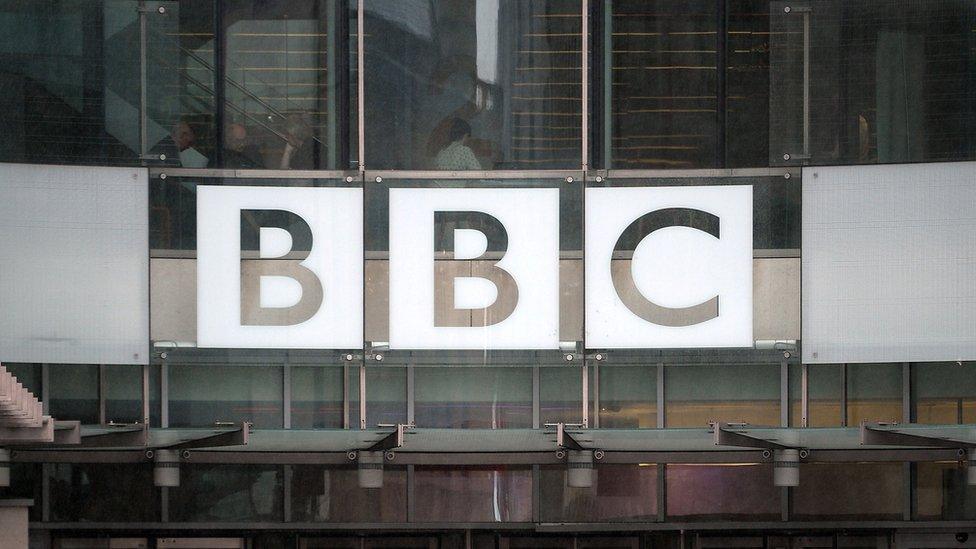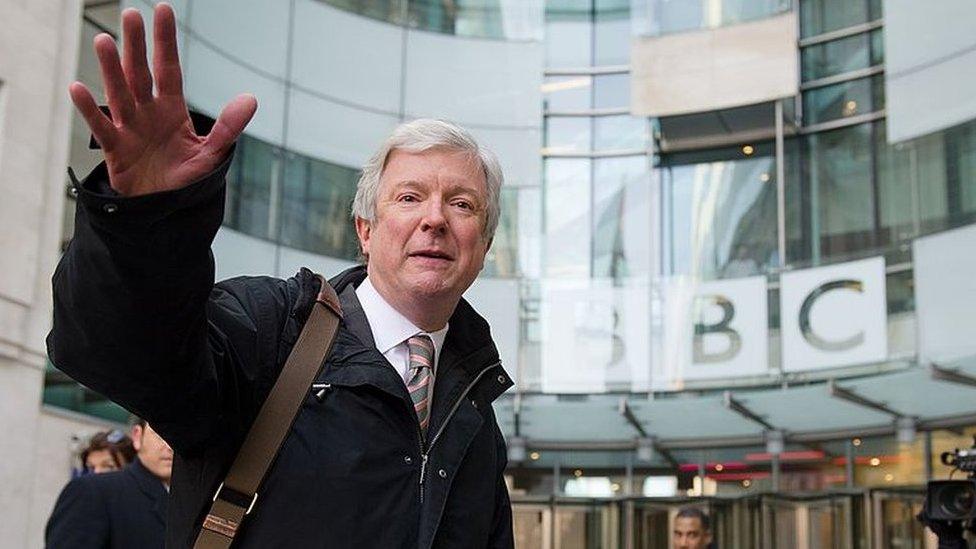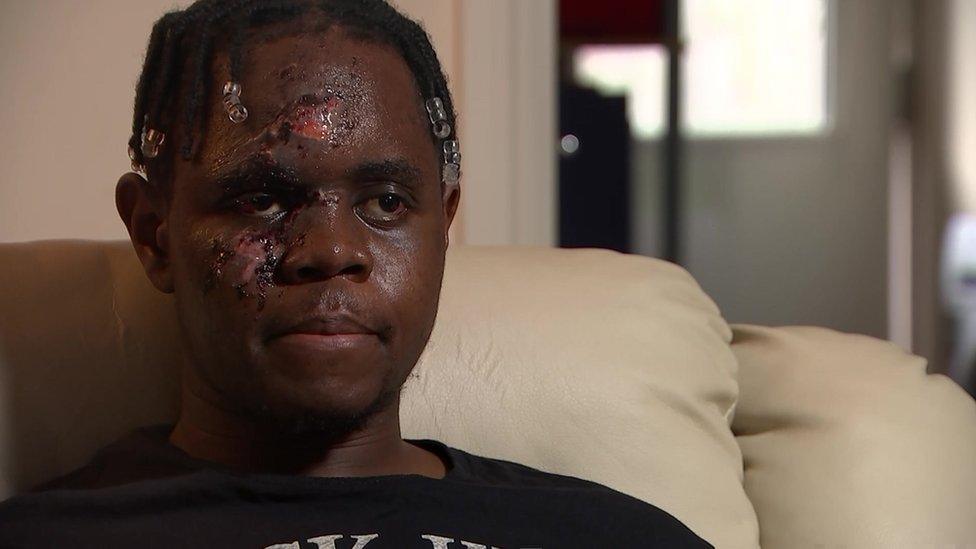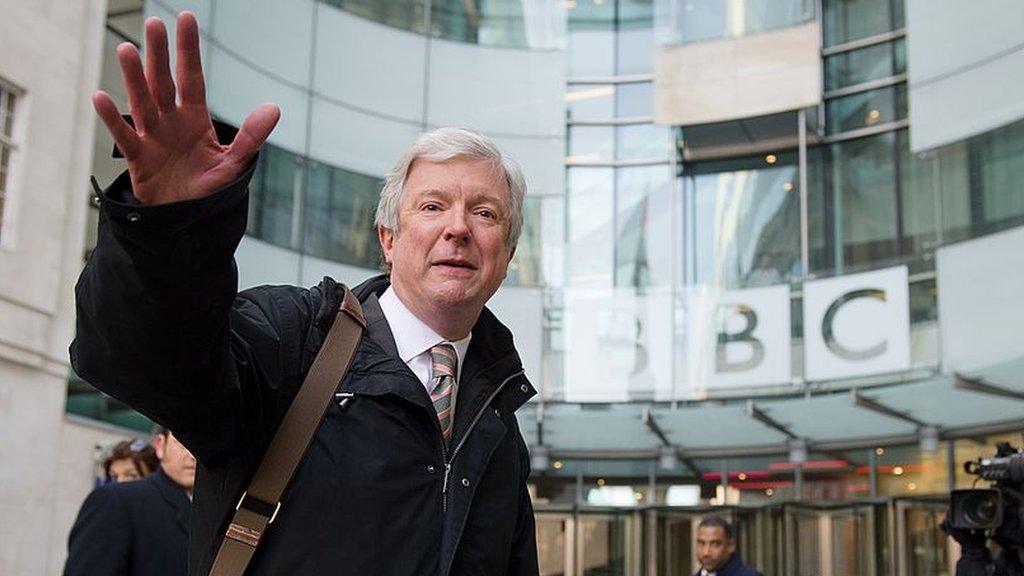BBC strengthens guidelines on racist language
- Published

BBC sign at New Broadcasting House in London
The BBC has issued staff new guidance on the use of racist language in the wake of the controversy provoked by the use of a racial slur in a news report.
Use of the strongest racist language, as defined by broadcasting regulator Ofcom, must be personally approved by the corporation's divisional directors.
"There must be exceptional editorial reasons to use the strongest racist terms," the updated guidance reads.
It follows the apology former director general Tony Hall made last month.
Lord Hall said the BBC had "made a mistake" in using the N-word in full in a report about a racially aggravated attack in Bristol.
The new guidance says the use of racist language "must be editorially justified, and signposted, to ensure it meets audience expectations, wherever it appears".
It says the "editorial justification test" would "now carry a presumption that such language will not normally be used" unless a judgement at divisional director level had ruled otherwise.
Divisional directors, the guidance continues, "should be made aware of and agree the use of the strongest racist language in any upcoming programmes or output on TV, Radio and Online/Digital."
The same applies to any use of the strongest racial language before the 9pm watershed, which again should take place only "in exceptional circumstances" and should be signed off beforehand.
More than 18,600 people complained after the N-word was used in full in a report broadcast by Points West and the BBC News Channel on 29 July.
The report described an attack on a 21-year-old NHS worker and musician known as K or K-Dogg, who was hit by a car on 22 July while walking to a bus stop from his workplace.
K-Dogg, who worked at Southmead Hospital in Bristol, suffered serious injuries including a broken leg, nose and cheekbone in the attack.
Police said the incident was being treated as racially aggravated due to the racist language used by the occupants of the car.

Lord Hall's apology came shortly before his departure as director general
The use of the N-word in the broadcast prompted widespread criticism, including by a number of politicians and BBC staff.
In its initial defence, the BBC said the decision to report the racial slur had not been taken lightly and that it understood people would be upset.
BBC Radio 1Xtra DJ Sideman quit the station over the row, saying the report and the BBC's defence of it felt like " a slap in the face of our community".
Last month Lord Hall said the BBC's intention had been "to highlight an alleged racist attack" but had "ended up creating distress amongst many people".
"The BBC now accepts that we should have taken a different approach at the time of broadcast and we are very sorry for that," he continued.
Lord Hall's tenure as director general came to an end shortly afterwards, with Tim Davie taking over at the beginning of September.

Follow us on Facebook, external, or on Twitter @BBCNewsEnts, external. If you have a story suggestion email entertainment.news@bbc.co.uk, external.
- Published2 September 2020

- Published9 August 2020

- Published6 August 2020
